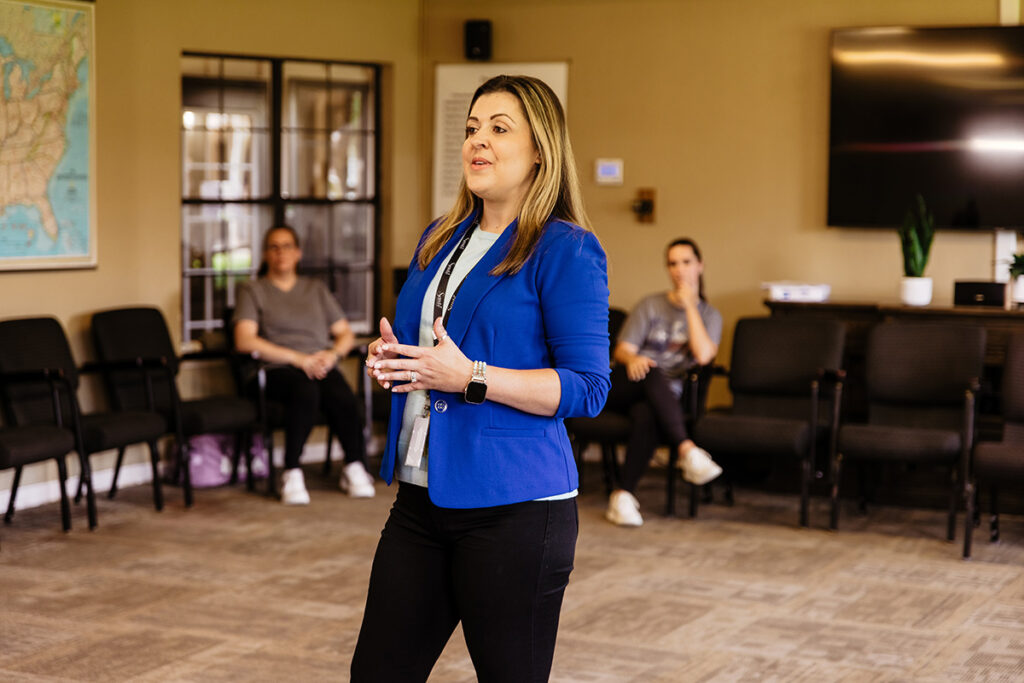There’s a massive addiction epidemic happening in the United States right now, and it involves many different substances. Unfortunately, many people think that the only cause of the rising overdose numbers is opioids. The reality is that thousands of people die from Xanax overdoses each year, and even more, have an addiction. If you’re struggling with a Xanax addiction, it’s important to understand the signs first and get the help you need from our addiction treatment at Santé Center for Healing.


Xanax Addiction Can Start with Anxiety
Many people need the help of Xanax addiction treatment in Dallas, Texas. This addiction often starts with anxiety issues. Anxiety can be a severe mental health condition, and some doctors prescribe Xanax to help with the symptoms. If you’re struggling with severe anxiety, you know how much it can affect your professional and personal life. Some of the primary symptoms of various anxiety disorders can include the following and more:
- Racing thoughts
- Intense worrying
- Elevated heart rate
- Sweating
- Panic attacks
Xanax is a fast-acting benzodiazepine that helps by calming down the part of the brain responsible for your anxiety. The problem is that due to how Xanax works, it’s possible for you to develop a Xanax addiction. When you have this type of addiction, it’s easy to sit in denial about the problem because you believe you need this medication. Through Xanax addiction treatment and Xanax detox, you’ll find that there are better ways to manage your anxiety.
The Dangers of Xanax Addiction
The growing addiction problem in the United States isn’t always due to mental health conditions, and some people use the medication to get high. More and more young people each year are experimenting with prescription narcotics due to easy access. Whether you’re struggling with this type of addiction from anxiety or other usage, it can be hazardous. This medication is a depressant, which means that it causes the nervous system to slow down. Many of the overdoses that happen each year from Xanax are purely accidental because people didn’t realize how much they were taking.
Aside from the possibility of overdose, the withdrawal from Xanax can be extremely harsh and dangerous. Xanax withdrawal is more dangerous than coming off of other drugs like heroin, cocaine, and meth. When you’re trying to get off of this drug, you must go through Xanax addiction treatment. During withdrawal, you’re at the risk of possibly fatal seizures and other issues, but a medical detox can greatly help.

Call Santé Center for Healing Today for Help with Xanax Addiction
Many people don’t understand that those with an addiction to drugs often want to quit but don’t know how. The best thing you can do for yourself is to realize that you can’t overcome your addiction independently. By getting benzo addiction treatment at a qualified treatment center, you’ll receive the support you need. In treatment, you’ll work with trained professionals who can help teach you a better way of living.
Part of this process is individual therapy, in which you’ll work with a therapist to discover the causes of your addiction. If you’re someone who struggles with anxiety, a therapist can help you develop new coping skills that don’t involve Xanax. You’ll find that you can face life successfully and overcome your anxiety without worrying about addictive substances. The other great benefit of treatment is the peer support you receive from others trying to begin a new life. Some of the relationships you build in treatment will last for years to come as you continue your recovery journey.
Santé Center is a full-service drug and alcohol treatment center located in Argyle, Texas, which also serves the surrounding areas. We’re passionate about helping people who are ready to begin a new life free from Xanax addiction. We’re a dual diagnosis treatment center, which means we specialize in addiction and mental health conditions. Some of the programs we offer here include the following:
If you’re ready to take on your Xanax addiction, call Santé Center for Healing today at 866.238.3154 or contact us online.






